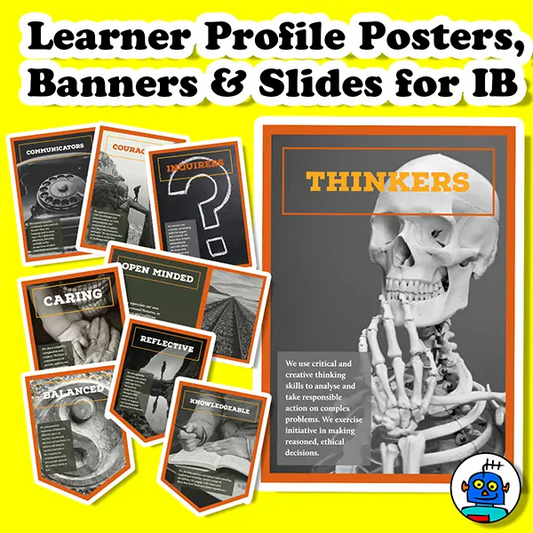Children's English Books for Preschool and Kindergarten
Picture Books, Early Reader Books, The Jolly Phonics Program, Read Aloud Books. Recommended reading from Mr Tim of The Magic Crayons and IB International School Librarian.
Home > Books
Teaching Advice
-
As an ESL English teacher, you likely already understand the critical role that reading plays in language acquisition. Reading books can provide your students with countless benefits, from building their vocabulary and grammar skills to enhancing their listening comprehension and overall language proficiency. In this article, we will explore the various ways in which reading books can support your students' language learning journey.
First and foremost, reading books is an excellent way to build vocabulary. By exposing your students to a wide range of words and phrases in context, they can learn new words and understand how they are used in real-world situations. This is especially important for ESL students who may have limited exposure to English outside of the classroom. Encourage your students to read books that are appropriate for their level and interests, and provide them with tools such as dictionaries and word lists to help them learn new words.
In addition to vocabulary building, reading books can also help your students develop their grammar skills. As they read, they will encounter various sentence structures and grammatical patterns, allowing them to better understand the rules of English grammar. This can lead to improved writing and speaking skills, as students become more confident in their ability to use correct grammar in their own language production.
Another benefit of reading books is that it can enhance your students' listening comprehension skills. By reading aloud to your students or having them read aloud to themselves, they can improve their ability to understand spoken English. This is because reading and listening involve similar cognitive processes, such as decoding and making meaning from language. Encourage your students to read books aloud or to listen to audio versions of books to further develop their listening comprehension skills. -
Reading books can also promote critical thinking and analytical skills in your students. As they read, they will encounter various perspectives, ideas, and themes, and must use their cognitive abilities to make sense of what they are reading. This can lead to improved problem-solving skills and an ability to think critically about the world around them.
Finally, reading books can simply be an enjoyable and rewarding experience for your students. When they find books that they enjoy, they will be more likely to continue reading and developing their language skills outside of the classroom. Encourage your students to explore a variety of genres and authors, and provide them with opportunities to share their reading experiences with one another.
In conclusion, reading books can play a significant role in language acquisition for ESL English learners. By building vocabulary, enhancing grammar skills, improving listening comprehension, promoting critical thinking, and providing an enjoyable experience, reading books can support your students' language learning journey in countless ways. Encourage your students to read regularly, and provide them with the tools and support they need to succeed. With time and practice, they will become confident and proficient English speakers and readers.
Why Read Books? Parents
-
As a parent, you play a crucial role in helping your child learn English. Reading books together is an excellent way to support their language development. By reading with your child regularly, you can help build their vocabulary, grammar, and comprehension skills, while also fostering a love of reading.
To get started, choose books that are appropriate for your child's age and language level. Look for books with simple sentences and easy-to-understand language. You can also choose books with pictures that will help your child understand the story.
Make time to read with your child every day, even if it's just for a few minutes. This will help establish a routine and create a positive reading environment. You can also take turns reading aloud to each other, which can improve your child's listening skills.
-
As you read, encourage your child to ask questions and share their thoughts about the story. This will help them develop critical thinking skills and engage with the text on a deeper level.
Finally, don't forget to make reading fun! Choose books that your child enjoys, and make it a special time to bond with each other. You can also incorporate props or costumes to bring the story to life.
In summary, reading with your child is a powerful way to support their English language development. By choosing appropriate books, reading regularly, and making it a fun and engaging experience, you can help your child build their language skills and a lifelong love of reading.
Popular Resources
-
MYP Learner Profiles Posters for Design, Robotics, and Computing. Digital Download.
Vendor:The Magic CrayonsRegular price $5.00 USDRegular priceUnit price / per -
MYP Learner Profiles Posters For School Library or Any Classroom. Digital Download.
Vendor:The Magic CrayonsRegular price $5.00 USDRegular priceUnit price / per -
IB Learner Profiles, IB Attributes Posters and Slides Bundle. Digital Download.
Vendor:The Magic CrayonsRegular price $9.00 USDRegular priceUnit price / per$14.00 USDSale price $9.00 USDSale -
IB Learner Attributes Posters, Animals Theme. Digital Download.
Vendor:The Magic CrayonsRegular price $4.00 USDRegular priceUnit price / per -
Japanese Flash Cards Bundle | Digital Download
Vendor:The Magic CrayonsRegular price $13.00 USDRegular priceUnit price / per$26.00 USDSale price $13.00 USDSale





